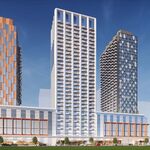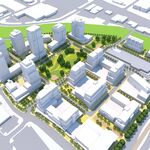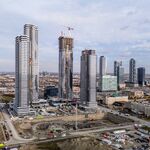Northern Light
Superstar
The first picture above in your post is where they are adding new (cycling) paths.... Is the concrete/lack of naturalization really an issue for putting in infrastructure?
Potentially. It certainly isn't an issue on the entirety of the area we're discussing, but in some spots it certainly could be a factor (that's not the same as my saying it has actually played a role here.)
Here's Watershed Greening Strategy from 2020. I haven't given a thorough look through just yet, but it would give you some idea where there may be a conflict for that reason.
Highland Creek Watershed Greening Strategy - Highland Creek Watershed Greening Strategy_final_forBOD_August 13.pdf
Its also possible, but again, I don't know, that flood management work may play a role, and/or erosion work. I can see some sections of these corridors are entirely floodplain. The City can totally deal w/that for a bike trail as it does
for nearly all ravine paths, but what I'm looking at is where the risk affects adjacent properties and it may be desirable to mitigate that risk.
You can play w/the TRCA floodplain map here:
One other thing you said though makes me wonder, you talked about 'ownership' issues...........
I can see where that may be a problem.
Some of those corridor sections do not show as Toronto Parks owned or designated property in my maps, nor are they designated as Transportation.
Again, I don't know this, but I might take a guess that they are Toronto Water owned.
In an earlier era, pedestrian/bike paths sometimes got done across hydro corridors or Toronto Water land etc on a handshake with the local Parks operations manager.
That never happens now. It just has me wondering if these technically aren't anyone's assets.
It might be worth reaching out to the applicable City Councillor to see if you can get a clear answer.
I observe when I look at the trail at Huntingwood, which is awful, but I digress:
There's no signage from Toronto Parks, none from Toronto Transportation, below the fence is probably Toronto Water.




